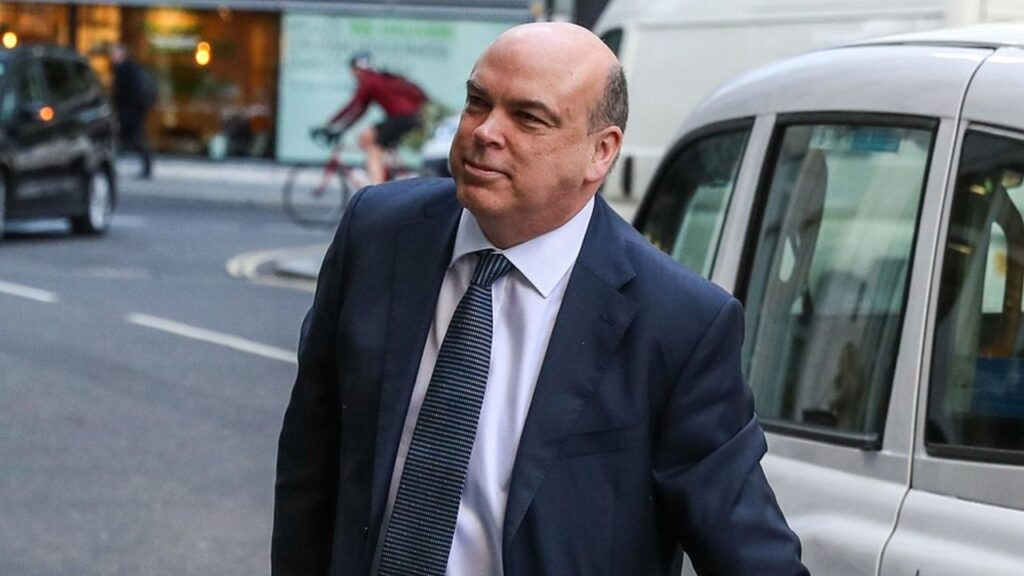Mike Lynch, the British tech billionaire and founder of software company Autonomy, has lost his legal battle in the UK to appeal his extradition to the United States, where he faces a criminal trial over Hewlett-Packard’s ill-fated $11 billion acquisition of his company in 2011.
The UK High Court on Friday dismissed Lynch’s latest appeal, reaffirming the 2021 decision that allowed his extradition. The ruling marks a significant escalation in one of the most high-profile white-collar criminal cases involving transatlantic tech and finance sectors in recent memory.
Hewlett-Packard (HP) acquired UK-based Autonomy in 2011 for $11 billion in a bid to transform its business through software innovation. But just a year later, HP wrote down the value of the acquisition by $8.8 billion, claiming that Autonomy had fraudulently inflated its revenues and misrepresented its financials. The deal, once hailed as a cornerstone of HP’s global strategy, instead became a costly and controversial blunder.
The U.S. Department of Justice charged Lynch with 17 criminal counts, including conspiracy to commit wire fraud and securities fraud. Prosecutors allege that Autonomy’s accounting practices misled HP, resulting in a $5 billion overpayment. Lynch has denied any wrongdoing, asserting that HP mismanaged the integration and failed to understand Autonomy’s business.
Legal Challenges and Extradition Battle
Lynch’s legal team had argued that since Autonomy was a UK-listed company with operations, audits, and board oversight based in the UK, the case should be tried in British courts. His attorneys also cited that much of the alleged misconduct took place in the UK and that the Serious Fraud Office (SFO) had not ruled out pursuing charges domestically.
But the High Court rejected these arguments, siding with U.S. prosecutors and emphasizing that the majority of Autonomy’s revenue came from the U.S., making it an appropriate jurisdiction. “The case should be prosecuted in the U.S. as most of Autonomy’s revenues came from the U.S.,” the judges wrote in their opinion.
This decision means Lynch is now set to be extradited to California, where he will face a jury trial alongside evidence and witnesses previously examined in a related civil case.
Lynch’s Dual Legal Battle
In addition to the criminal trial, Lynch has already suffered a major defeat in the civil courts. In 2022, he lost a $5 billion civil fraud lawsuit brought by Hewlett Packard Enterprise (HPE)—a successor to HP following its 2015 corporate split. That case involved similar allegations and relied on many of the same witnesses expected to testify in the U.S. criminal trial.
Autonomy’s former CFO, Sushovan Hussain, was previously convicted in the U.S. and is currently serving a five-year prison sentence after being found guilty of fraud in 2018.
Lynch remains defiant. In a statement issued through a spokesperson, he said he was “very disappointed” with the ruling and criticized what he views as U.S. legal overreach into British jurisdiction. “The United States’ legal over-reach into the UK is a threat to the rights of all British citizens and the sovereignty of the UK,” he added.
He confirmed he will consider further appeals, including to the European Court of Human Rights.
The case has drawn intense scrutiny from business leaders, legal scholars, and market regulators on both sides of the Atlantic. It has become a cautionary tale for international mergers and acquisitions, especially those involving companies with complex cross-border financials and accounting systems.
The HP-Autonomy saga has long haunted HP’s reputation and investor confidence. While HP Inc. (which now focuses on computers and printers) has distanced itself from the deal, HPE (Hewlett Packard Enterprise), which manages enterprise services and cloud infrastructure, has remained active in seeking legal recourse.
Investors and corporate executives are closely watching Lynch’s criminal trial, which could influence future regulations on tech sector acquisitions, due diligence standards, and financial transparency in international transactions. Any developments may also affect investor sentiment toward UK-based tech firms involved in U.S. business deals.







[…] The High Court ruled in HP’s favor in 2022, though a judge said the company would receive “considerably less” than $5 billion. […]